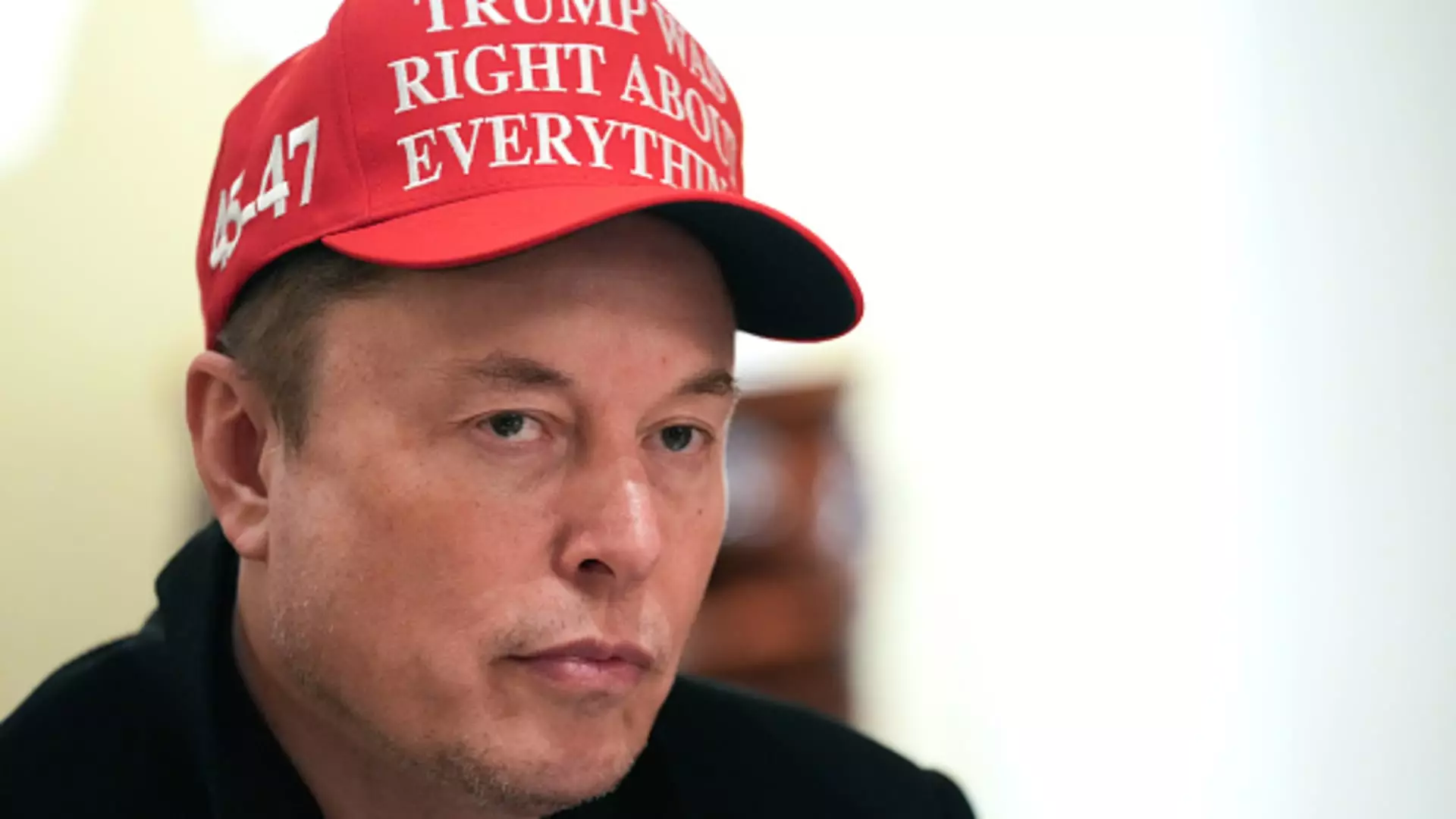Recent trends indicate a significant shift in public sentiment regarding Tesla, the electric vehicle (EV) titan founded by the enigmatic Elon Musk. As demonstrated by the CNBC All-America Economic survey, a staggering 47% of Americans wield negative opinions about the company, while only 27% express a favorable outlook. This dwindling enthusiasm stands in sharp contrast to General Motors, which enjoys a better reception with a third of the populace viewing it positively. The data raises critical questions: What has caused such a drastic turn against a company once celebrated for its innovation and impact on the automotive landscape?
Elon Musk’s Polarizing Presence
Central to this narrative is Elon Musk himself, whose approach to leadership and proclivity for controversy seems to mirror Tesla’s growing public disdain. Represented by a contrasting array of opinions, Musk garners a negative portrayal from half of American respondents. Notably, his alignment with particular political factions, including support for Republicans and controversial public statements, has painted him as a divisive figure. This schism in public approval becomes even more pronounced along demographic lines. With a net approval rating of -82 among Democrats, it’s apparent that Musk’s actions resonate unfavorably within pivotal customer segments.
The Disconnect Between EV Enthusiasm and Tesla Loyalty
One of the most striking outcomes of the survey is the disconnect between the strong positive sentiments surrounding electric vehicles themselves and the lukewarm reception for Tesla. More Americans are optimistic about EVs than they are about buying one from Tesla. It’s been posited that while younger individuals exhibit enthusiasm for sustainable transport, the strong negativity regarding Tesla diminishes potential sales. For instance, individuals aged 18-34 demonstrate a net positive of +19 towards electric vehicles but exhibit a stark -23 net negative for Tesla. This inconsistency suggests not only a perception problem for Tesla but also an opportunity that competitors can exploit.
Political Influences and Market Implications
Examining the broader implications, the polarized views of Tesla overlap with profound political divides. While Republicans view the company and Musk favorably, the prevailing negativity especially among Democrats threatens Tesla’s growth in key markets. The current political landscape has made Tesla’s brand image increasingly susceptible to external influences, raising questions about the long-term viability of Musk’s politically charged strategies. Businesses today must navigate not just product quality but the societal discourse surrounding them, and in this arena, Tesla faces increasing hurdles.
A Call for a Shift in Strategy
If Tesla is to reclaim its place as a beloved brand and secure its foothold in the ever-evolving automotive industry, a recalibration of its public relations strategy is necessary. There is a wealth of opportunity within the segment that appreciates electric vehicles but harbors reservations about the Tesla brand. Engaging more directly with communities, fostering inclusive discussions, and making the case for the benefits of EV transition could realign public perception positively. Tesla must strive to be more than just a car manufacturer; it should position itself as a champion for sustainable innovation—an approach that could resonate more strongly with consumers, diversifying its appeal beyond polarized politics.

